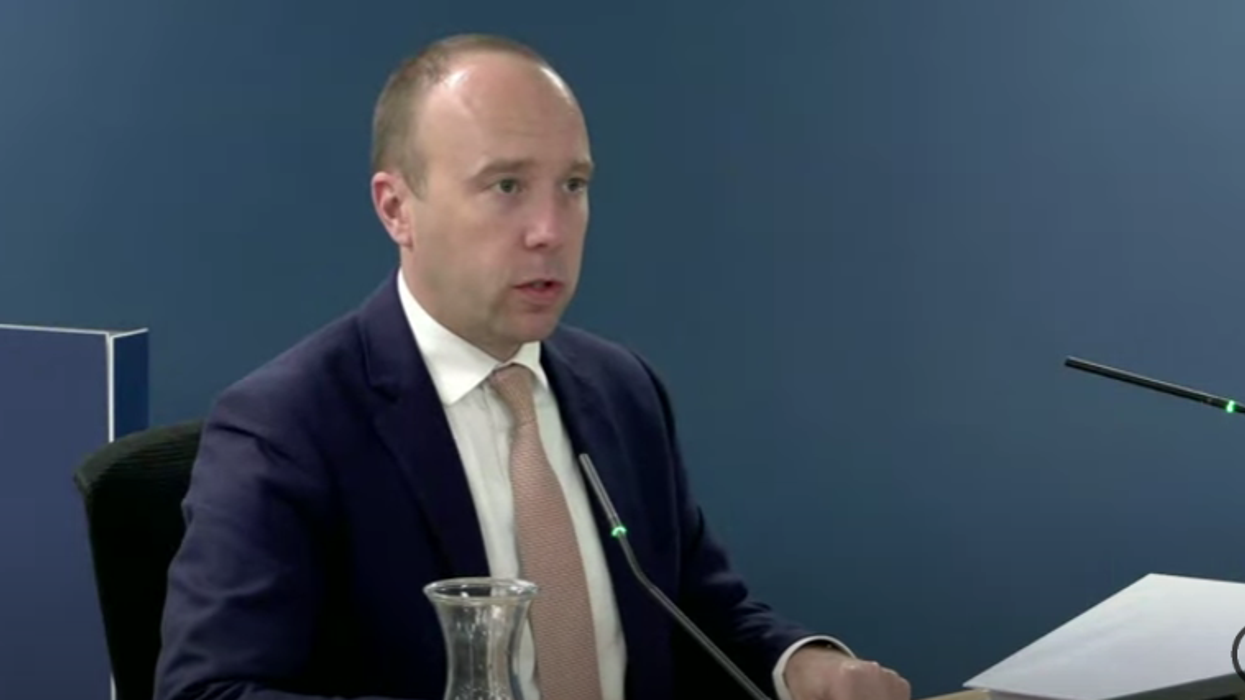Matt Hancock highlighted an inherent lack of enthusiasm within NHS England's senior management for providing more support to community pharmacists
Former health secretary Matt Hancock, who gave evidence to the Covid-19 Inquiry on Thursday (21 November), admitted that NHS England has traditionally been very restrictive toward pharmacists, attributing this to the inadequate support provided to community pharmacies during the pandemic.
Earlier this month, Nick Kaye, chair of the National Pharmacy Association (NPA), told the inquiry that community pharmacists felt “demoralised and demotivated” by how they were overlooked during the pandemic, including the delay in initial access to PPE and the COVID life assurance scheme.
Community pharmacists were unable to access FFP3 masks and the PPE portal until August 2020.
When the inquiry’s lawyer questioned Hancock about the reason for the delay, he stated, “In a world of highly constrained PPE availability, we had to be careful to ensure it got to where it was most needed, and there's a hierarchy” suggesting that community pharmacists were considered a lower priority.
The former health secretary added that PPE was eventually made available to pharmacists because he pushed for that.
When asked about the initial exclusion of community pharmacies in the government’s emergency pandemic life assurance scheme.
Hancock said: “I’m going to give you the brutally honest answer to this, with some trepidation…the pharmacy contract is managed by NHS England. In order to maximise taxpayer value for money, NHS England is by tradition really very tight on pharmacists… there is therefore inbuilt into NHS England senior management a lack of enthusiasm for giving more to community pharmacists than they absolutely have to…”
The scheme was rolled out on April 27, 2020, initially covering NHS and care home staff, including pharmacies in a hospital or GP setting.
Hancock only confirmed the inclusion of community pharmacy staff in a Tweet three days later, on April 30. But NPA told the inquiry that community pharmacists felt they were being treated as an afterthought.
Hancock, who described himself as a “big supporter” of community pharmacy, also acknowledged that the system was not looking after community pharmacists enough.
He added that while community pharmacists were at the top of his mind, it was difficult for him as Secretary of State to drive decisions through the system because there are “constraints on what you can do.”
NPA chief executive, Paul Rees, expressed concern over the inequitable treatment of community pharmacies, which is also evident in their funding cuts.
“It is scandalous that community pharmacies are treated as second class citizens within the healthcare system.
“That attitude was evident during the pandemic and is still playing out today in the form of chronic underfunding.
“The consequences are clear for all to see in terms of pharmacy closures and poor morale in the sector,” he said.
In the recent NPA ballot, thousands of pharmacy owners have voted to reduce services, unless underfunding is urgently addressed.
Paul urged the government and NHS England to fix the immediate financial crisis and recast community pharmacy in their minds as “a valuable partner in fixing long-standing NHS challenges, not as a cost centre.”
The NPA is a core participant in the ongoing inquiry, set up in June 2022.













